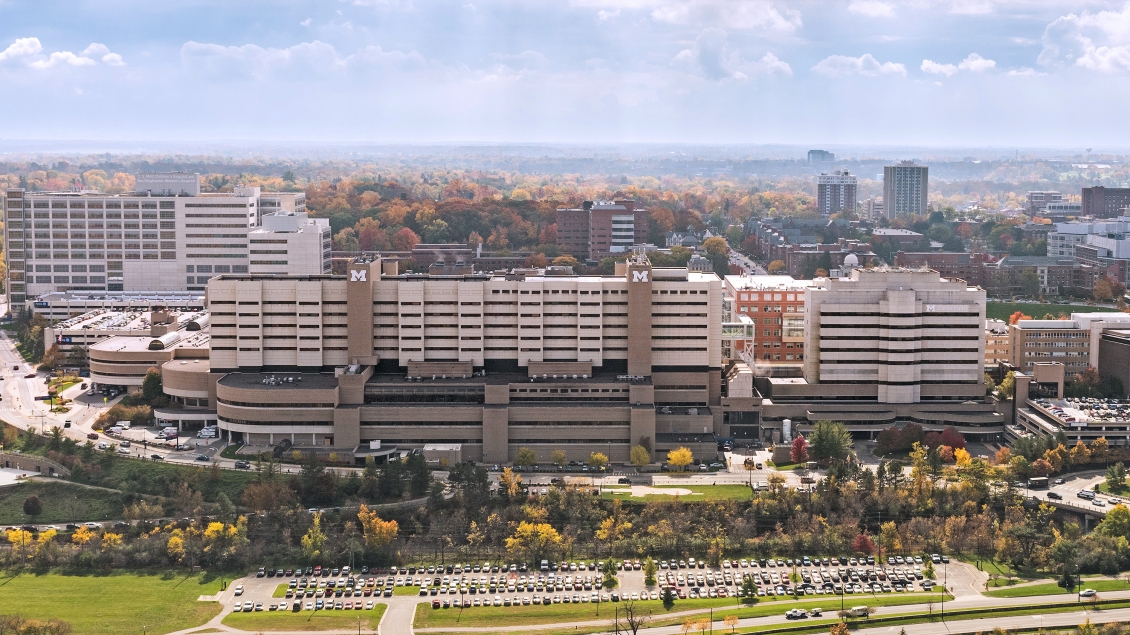
We have developed a well-established environment of collaborative research that provides a wide variety of opportunities for multidisciplinary research training. The overarching theme of our training program is based on research initiatives that integrate basic biologic processes and modern scientific approaches into multidisciplinary disease-oriented translational research.
Basic and clinical research programs are organized around an interactive, multidisciplinary approach to research and research training. This includes basic research in the fields of cellular immunology, mediator biology, pulmonary epithelial cell biology, mechanisms of pulmonary inflammation, fibroblast biology, stem cell biology, regulation of gene expression, functional genomics, metagenomics, metabolomics and host defense.
Patient-based research opportunities are broad-ranging and diverse and have expanded since the last funding cycle. Interactive groups of investigators with interests in fibrotic lung diseases, acute lung injury, and chronic obstructive pulmonary diseases have active, productive clinical investigative programs. Investigators with interests in biostatistics, epidemiology, economics, health care organization and financing, medical education, clinical study design, clinical outcomes, and health care education are available. More than 15 faculty are available in the Patient-based Studies Program. Moreover, it remains an important objective of our program that we offer training options in both laboratory and patient-oriented research.
Our training grant offers research opportunities in many areas of basic biology. Particular areas of emphasis include host-pathogen Interactions, lung injury and repair, airways disease, and transplantation biology.
- Host-pathogen Interactions: Investigators in pulmonary host defense have a long track record of highly interactive, productive interactions via R01 and VA Merit Review funded grants at the University of Michigan. Specific areas of expertise include fungal host defense, viral host defense, innate immunity, adaptive immunity, toll like receptor, and NOD-like receptor biology. Faculty trainers are involved in studies to define the microbiome in the mammalian host and its interaction with pulmonary host defenses utilizing functional metagenomic and immunologic approaches.
- Lung Injury and Repair: The University of Michigan has a longstanding history of a productive multidisciplinary approach to understanding basic mechanisms of lung injury and repair. Specific areas of expertise include chemokine biology, sepsis-induced lung injury, toll receptor signaling in non-infectious lung injury, mesenchymal stem cell biology, epithelial cell biology, cell death and autophagy, and influence of environment factors (e.g. mechanical stretch, hyperoxia) on lung injury responses. Both acute lung injury and diffuse parenchymal lung diseases result in fibroproliferative lung diseases, which is an active area of research. Specific areas of expertise include fibroblast biology, epithelial-mesenchymal cell transition, protease biology, and viral infection/repair interactions.
- Airway Biology: Faculty trainers have built a comprehensive bench-to-bedside program for identifying basic mechanisms of airway inflammation and disease. Trainers are studying allergic models of airway inflammation, including cockroach and ova-induced asthma. The synergistic effects of tobacco smoke exposure and viral infection is being studied in animal models and patient populations. Cutting edge translational studies using lung tissues collected from patients with COPD as a component of SPIROMICS and the LTRC have employed immunohistochemistry, laser-capture microdissection, PCR and multi-color flow cytometry.
- Transplant Biology: An expanding arena of research has been created within the University of Michigan's Program in Lung Transplantation and its longstanding programs in bone marrow transplantation. This program has generated opportunities for trainees interested in acute allograft rejection and chronic bronchiolitis obliterans, both of which are major obstacles to long term allograft function and survival. Areas of active investigation include the prognostic and biologic significance of mesenchymal stem cells in the pathogenesis of BOS, re-implantation lung injury, epithelial/mesenchymal interactions, and mesenchymal cell/T cell interactions.
The University of Michigan has been at the forefront of innovative technology that allows for novel hypotheses to be tested in proof-of-concept experimental model systems and diseased humans. While these modern technologies have been integrated into our investigative programs, they have also offered unique training opportunities that have been captured since the last competitive renewal of this program. Specific programs include proteomics, genomics, epigenetics, metabolomics, bioinformatics/computational biology, and metagenomics and the microbiome.
One of the strengths of our training program is the scope of its disease-oriented translational research, which is supported by large multidisciplinary research projects and by longstanding, well-established, productive collaborative groups of investigators. We have expanded our participation in NIH-sponsored clinical research programs over the past 10 years.
These large patient populations, databases, and biological samples provide rich opportunities for our basic scientist trainees to perform innovative basic translational research and for our clinical scientist trainees to work with senior faculty in the development, performance, and analysis of national multi-center clinical trials. These rich databases and biobanks form the platform for analytical projects which have led to important publications.
Many large disease-oriented research programs exist within the training program, focused primarily in three areas of investigation: Interstitial Lung Disease (ILD), Chronic Obstructive Pulmonary Disease (COPD), and Critical Care. A new area of patient-oriented translational research is in Sleep-related Disorders.